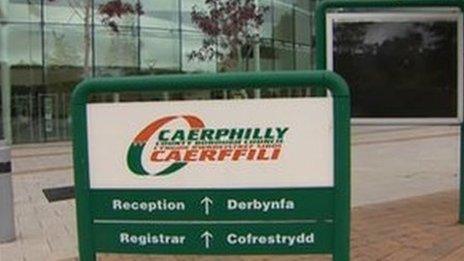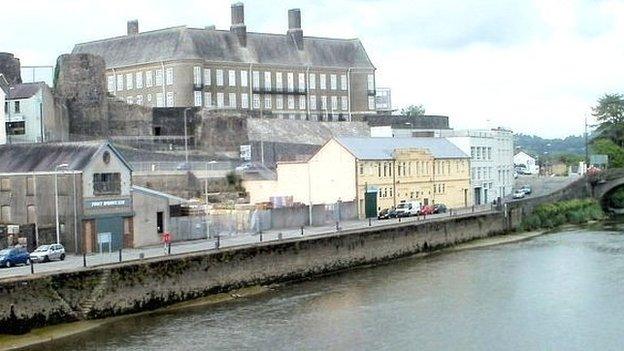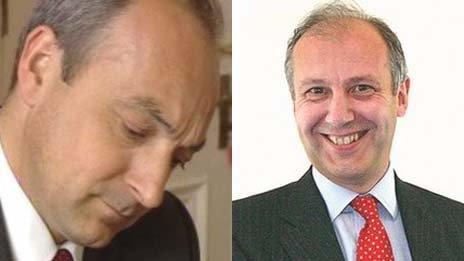Caerphilly council chief 'on special paid leave'
- Published

A council chief executive at the centre of a probe into pay rises given to senior staff is no longer suspended but instead on "special paid leave".
Anthony O'Sullivan and two other Caerphilly council officers were suspended on full pay in 2013.
It was claimed they agreed to give themselves 20% pay rises when most council staff faced pay freezes.
A criminal case was dropped in 2015 which the council said led to the change in Mr O'Sullivan's status.
He is not back at work because the authority is still carrying out its own internal investigation into the pay rises.
But because the misconduct in public office criminal charges were thrown out of court, Mr O'Sullivan's solicitor highlighted to the council the suspension was both "unlawful" and "unconstitutional".
The change to special paid leave was made in March but it was not made public.
In a statement, Mr O'Sullivan's solicitors said: "The council was grateful to Mr O'Sullivan for accepting this change of status but requested that he did not publicise this fact.
"Mr O'Sullivan behaved honourably, as ever, in observing this request."
The revelation came out because Mr O'Sullivan's solicitor David Lewis, of Richards and Lewis, wrote to the council in November requesting the change be made public because of continued media reports referring to him as suspended.
Mr O'Sullivan, along with deputy Nigel Barnett and head of legal services Daniel Perkins were suspended in 2013 after the Wales Audit Office declared their pay rises unlawful.
A council spokesman said: "At its meeting on 3 March 2016, the council's investigating and disciplinary committee resolved, having received legal advice, that the suspensions of the three statutory officers be converted into special leave.
"This change in status was not a reflection on the merits of the case, but rather a response to a technical time restriction as to the duration of suspensions which is imposed on the council by the Local Authorities (Standing Orders) (Wales) (Amendment) Regulations 2014."
- Published23 November 2016

- Published20 October 2015

- Published20 October 2015

- Published18 February 2014

- Published27 February 2014

- Published30 January 2014
